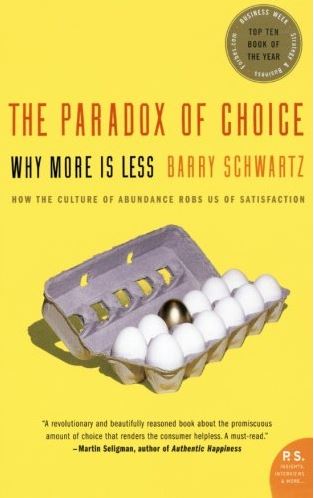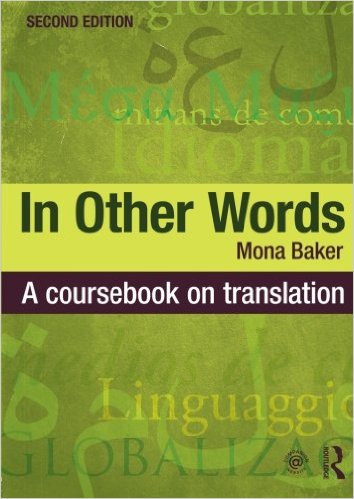Our Community
Get to know our community
Join Translation Journal
Click on the Subscribe button below to receive regular updates.
Abdelhamid Alili
Question and Answer
- What is your name?
- Abdelhamid Alili
- Where do you live?
- Khemis Miliana -Algeria
- What made you decide to become a translator or interpreter?
- I love it, like it and for me translation is the key to any science
- List one strength that you think sets you apart from your colleagues.
- I am excellent at Arabic-Frebch and Engkish translation, highly educated and with a lot of skills , also possessing a great knowledge in different domains
- Name the one thing that you most enjoy in your translating or interpreting career.
- literature and juridical interpretation and translation
- We all have worked on those not-so-perfect assignments. Write about one such assignment that was not ideal and what you learned from it.
- I remember when I had to do technical translation, I managed to dio it though, and I learnt from it tht technical translation seems to concise, however it is very broad and extremely large for the different technical domains one has has to do with
- If you could go back in time to when you were just starting out as a translator or interpreter, what advice would you give to your younger self?
- be concise and perwseverant
- Name one resource – such as a phone app, CAT tool, website, and so forth – that you find especially helpful in your translating or interpreting work.
- Translator
- What's the best book you've read this year?
- A liguistic theory of translation
Aneta Naumoska
Question and Answer
- What is your name?
- Aneta Naumoska
- Where do you live?
- Skopje, Macedonia
- What made you decide to become a translator or interpreter?
- I've always been fascinated by the inherent beauty of every language and how in translation languages cooperate, yet how some words/meanings cannot be perfectly translated.
- List one strength that you think sets you apart from your colleagues.
- Critically approaching the language of every billboard and menu I see in the city!
- Name the one thing that you most enjoy in your translating or interpreting career.
- Having the chance to work with a myriad of personalities.
- We all have worked on those not-so-perfect assignments. Write about one such assignment that was not ideal and what you learned from it.
- In fact, it was a not-so-perfect text that was given to me, with an unreasonable deadline, so I firstly had to "decipher" the syntax of the text so as to be able to understand it, then translate it. The lesson I learned is always be given the chance to first take a look at the text to be translated, then accept or decline the translation work, accordingly.
- If you could go back in time to when you were just starting out as a translator or interpreter, what advice would you give to your younger self?
- Don't think you can translate 24 hours a day - leave some time for sleep!
- Name one resource – such as a phone app, CAT tool, website, and so forth – that you find especially helpful in your translating or interpreting work.
- My new app that was just released (iOS, Android): Business Dictionary MacEng
- What's the best book you've read this year? (and the most recent)
- "The Paradox of Choice: Why More is Less", Barry Schwartz
Whether we're buying a pair of jeans, ordering a cup of coffee, selecting a long-distance carrier, applying to college, choosing a doctor, or setting up a 401(k), everyday decisions—both big and small—have become increasingly complex due to the overwhelming abundance of choice with which we are presented.
As Americans, we assume that more choice means better options and greater satisfaction. But beware of excessive choice: choice overload can make you question the decisions you make before you even make them, it can set you up for unrealistically high expectations, and it can make you blame yourself for any and all failures. In the long run, this can lead to decision-making paralysis, anxiety, and perpetual stress. And, in a culture that tells us that there is no excuse for falling short of perfection when your options are limitless, too much choice can lead to clinical depression.
In The Paradox of Choice, Barry Schwartz explains at what point choice—the hallmark of individual freedom and self-determination that we so cherish—becomes detrimental to our psychological and emotional well-being. In accessible, engaging, and anecdotal prose, Schwartz shows how the dramatic explosion in choice—from the mundane to the profound challenges of balancing career, family, and individual needs—has paradoxically become a problem instead of a solution. Schwartz also shows how our obsession with choice encourages us to seek that which makes us feel worse.
By synthesizing current research in the social sciences, Schwartz makes the counter intuitive case that eliminating choices can greatly reduce the stress, anxiety, and busyness of our lives. He offers eleven practical steps on how to limit choices to a manageable number, have the discipline to focus on those that are important and ignore the rest, and ultimately derive greater satisfaction from the choices you have to make.
Michelle Asselin
Question and Answer
- What is your name?
- Michelle Asselin
- Where do you live?
- Verdun
- What made you decide to become a translator or interpreter?
- In my first career I was often asked to translate texts. I decided it would be better to work on my own, since I could then be selective about clients and texts.
- List one strength that you think sets you apart from your colleagues.
- Inquisitive mind, eager to learn something new every day.
- Name the one thing that you most enjoy in your translating or interpreting career.
- The things I learn through research.
- We all have worked on those not-so-perfect assignments. Write about one such assignment that was not ideal and what you learned from it.
- In the early days of voice recognition software I received a text dictated but neither proofread nor edited. I had to read it loud several times with a fake accent to figure out what it said. I should have refused to translate that garbage.
- If you could go back in time to when you were just starting out as a translator or interpreter, what advice would you give to your younger self?
- Get the best education, the best tools you can. Discuss and network with experienced colleagues. Learn from other pros.
- Name one resource – such as a phone app, CAT tool, website, and so forth – that you find especially helpful in your translating or interpreting work.
- DejaVu. I have been using it for close some 20 years.
- What's the best book you've read this year?
- The three books written by J.K. Rowlings under the Robert Galbraith name. I tend to read light stories to rest my mind.
Awad
Question and Answer
- What is your name?
- Awad
- Where do you live?
- Poland
- What made you decide to become a translator or interpreter?
- to communicate messages from one culture and language into another one...to overcome languages and culture barriers
- List one strength that you think sets you apart from your colleagues.
- mutual trust and honesty
- Name the one thing that you most enjoy in your translating or interpreting career.
- converge culture and traditions
- We all have worked on those not-so-perfect assignments. Write about one such assignment that was not ideal and what you learned from it.
- actually not assignment perfect 100% but it could be best ..the assignments which was not ideal i will do my best to learn negative points to raise them to be positive and make that assignment be best and progressive
- If you could go back in time to when you were just starting out as a translator or interpreter, what advice would you give to your younger self?
- don't try to translate word to word but you should focuess on cultural meaning and pay more attention to target readers to communicate the text messages into them easily to be understood
- Name one resource – such as a phone app, CAT tool, website, and so forth – that you find especially helpful in your translating or interpreting work.
- journal international translation studies
- What's the best book you've read this year?
- On other words...Mona Baker
In Other Words is the definitive coursebook for anyone studying translation. Assuming no knowledge of foreign languages, it offers both a practical and theoretical guide to translation studies, and provides an important foundation for training professional translators.
Drawing on modern linguistic theory, this best-selling text provides a solid base to inform and guide the many key decisions trainee translators have to make. Each chapter offers an explanation of key concepts, identifies potential sources of translation difficulties related to those concepts, and illustrates various strategies for resolving these difficulties. Authentic examples of translated texts from a wide variety of languages are examined, and practical exercises and further reading are included at the end of each chapter.
The second edition has been fully revised to reflect recent developments in the field and new features include:
A new chapter that addresses issues of ethics and ideology, in response to increased pressures on translators and interpreters to demonstrate accountability and awareness of the social impact of their decisions.
Examples and exercises from new genres such as audiovisual translation, scientific translation, oral interpreting, website translation, and news/media translation.
New project-driven exercises designed to support MA dissertation work
Updated references and further reading.
A companion website featuring further examples and tasks
Written by Mona Baker, a leading international figure in the field, this key text is the essential coursebook for any student of translation studies.

